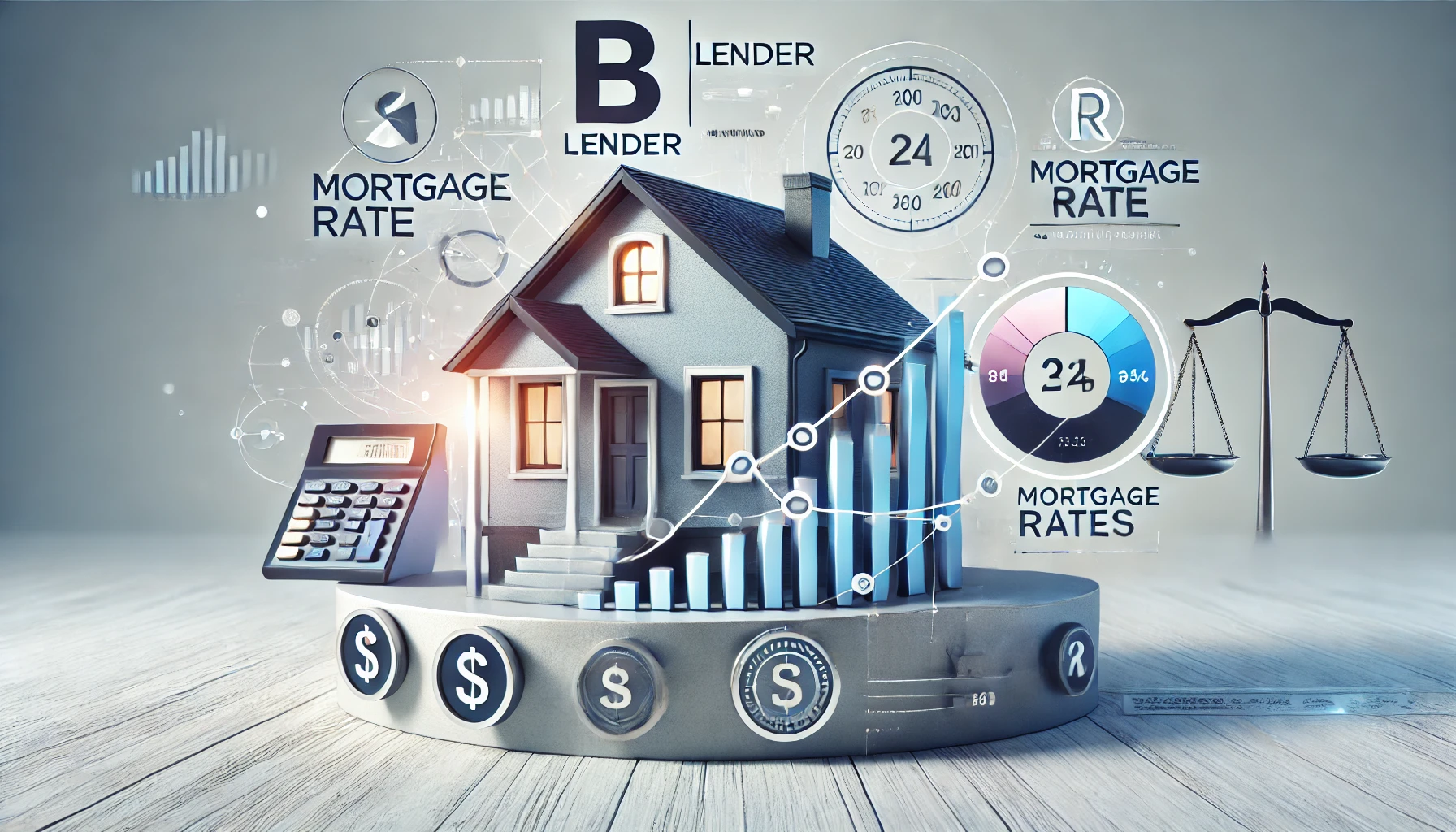When searching for a mortgage, many borrowers initially turn to traditional lenders, such as major banks and credit unions. However, not everyone qualifies for a mortgage through these sources. This is where B lenders, or alternative lenders, come into play. Understanding how B lender mortgage rates work and when they might be the right option can help you make an informed decision about your home financing needs.
Who Are B Lenders?
B lenders are financial institutions or private lenders that offer mortgage solutions to individuals who may not meet the strict criteria of A lenders (traditional banks). These criteria often include high credit scores, stable income, and low debt levels. B lenders cater to:
- Self-employed individuals with variable income.
- Borrowers with less-than-perfect credit histories.
- Newcomers to Canada without an established credit record.
- Homebuyers purchasing unconventional properties.
How Do B Lender Mortgage Rates Compare to A Lenders?
B lender mortgage rates are typically higher than those offered by A lenders. This is because B lenders take on borrowers who may present a higher risk. The exact rate depends on several factors, including:
- Credit Score: While B lenders are more flexible, a higher credit score can still result in better rates.
- Loan-to-Value Ratio (LTV): Borrowers with larger down payments or equity often secure lower rates.
- Income Documentation: Providing extensive documentation of income stability may help negotiate better terms.
For example, while an A lender might offer a rate of 5.5% for a 5-year fixed mortgage, a B lender might provide a similar product at 6.5% to 9%, depending on the borrower’s profile.
Additional Costs Associated with B Lender Mortgages
Aside from higher interest rates, borrowers should be aware of additional costs:
- Lender Fees: B lenders often charge lender fees, which can range from 1% to 3% of the mortgage amount.
- Broker Fees: Mortgage brokers who work with B lenders may also charge fees for arranging the mortgage.
- Shorter Terms: B lender mortgages often have shorter terms (1 to 3 years), requiring more frequent renewals.
- Higher Prepayment Penalties: Some B lenders impose stricter penalties if you decide to break or refinance the mortgage early.
Pros and Cons of B Lender Mortgages
Pros:
- Flexible Approval Criteria: B lenders consider borrowers with credit issues, non-traditional income, or other unique circumstances.
- Fast Processing: Many B lenders offer quick approvals and funding, ideal for urgent situations.
- Customized Solutions: Tailored mortgages that accommodate individual financial circumstances.
Cons:
- Higher Interest Rates: The cost of borrowing is generally higher than with A lenders.
- Additional Fees: Borrowers often face lender and broker fees, increasing the overall cost.
- Short-Term Nature: Frequent renewals can lead to uncertainty about future rates and terms.
When Should You Consider a B Lender?
A B lender might be the right choice if:
- You’ve Been Declined by A Lenders: If you’ve been turned down due to credit issues, insufficient income proof, or other factors, a B lender can provide a viable alternative.
- You Need Fast Approval: B lenders are often more flexible and can approve loans quickly, making them ideal for time-sensitive situations.
- You’re Repairing Your Financial Profile: Many borrowers use B lender mortgages as a stepping stone to rebuild credit or income stability before transitioning to an A lender.
How to Improve Your Financial Profile While with a B Lender
If you opt for a B lender mortgage, use the opportunity to strengthen your financial standing. Here’s how:
- Improve Credit Score: Pay down debts, make payments on time, and keep credit utilization low.
- Build a Stable Income Record: Consistently document income and aim for stable or increasing earnings.
- Save for a Larger Down Payment: Greater equity can improve your negotiating power for future loans.
Tips for Working with B Lenders
- Work with a Mortgage Broker: A broker experienced with B lenders can help you navigate options and negotiate favorable terms.
- Understand the Terms: Read the fine print, including penalties for breaking the mortgage and conditions for renewal.
- Plan for the Future: Use the term of your B lender mortgage to improve your financial profile, aiming to qualify for an A lender mortgage later.
- Negotiate Terms: While B lenders often have set rates, negotiating repayment flexibility or reduced fees is sometimes possible.
The Role of Mortgage Brokers in Securing B Lender Mortgages
Mortgage brokers can be invaluable when seeking a B lender mortgage. They have access to multiple lenders and can match you with the best fit for your financial situation. Brokers also handle the negotiation process, saving you time and effort. However, be sure to clarify broker fees upfront to avoid unexpected costs.
Final Thoughts
While B lender mortgage rates are higher than those of traditional lenders, they provide a valuable solution for borrowers who face challenges securing financing. By understanding the costs, benefits, and long-term strategies associated with B lender mortgages, you can make an informed decision that aligns with your financial goals.
In the long run, working to improve your financial profile can open doors to better mortgage terms and lower rates with traditional lenders. Whether you’re purchasing your first home, refinancing, or addressing unique financial challenges, B lenders can offer a flexible and practical solution.


 using WordPress and
using WordPress and
No responses yet